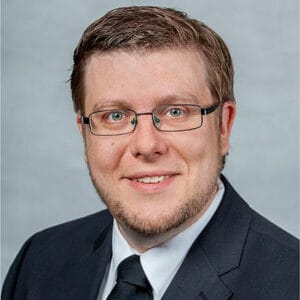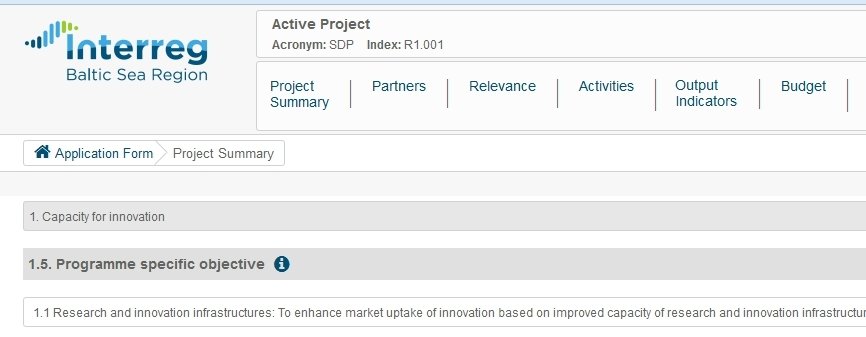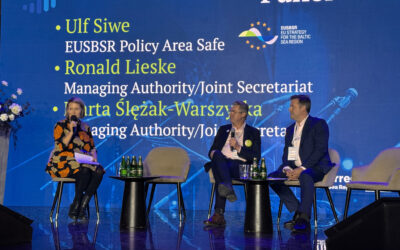Smaller paper piles, no more inconsistent file versions of the project application or report, less re-typing of information – this is what the new electronic monitoring system BAMOS of Interreg Baltic Sea Region is about. BAMOS is ready to be launched by Interreg Baltic Sea Region in May 2015. Robert Schulz, information coordinator at the Programme’s Managing Authority/Joint Secretariat (MA/JS) explains what BAMOS means for project applicants, lead partners, partners and first level controllers.
What will change with the e-monitoring system?
Robert Schulz: With BAMOS, all forms related to project applications and reporting will be filled in and processed online – both on the project and on the Programme sides. This means, we are moving from extensive excel sheets, troublesome pdf forms and hard to handle word documents to a web solution.
Who will use BAMOS and for what?
Robert Schulz: All applicants who have successfully passed the first application step will use BAMOS. During the second step, i.e. for the submission of the full-fledged application, lead applicants will get a log-in and will enter their application information directly in the system. They can assign sub-accounts to their partners, so basically the application can be written collaboratively online. For approved projects, all exchange between the projects and the MA/JS related to contracting, project reporting and clarification of reports as well as changes in the project will be carried out through BAMOS. First level controllers of the lead partner will also get access to BAMOS to validate the reports. If someone is involved in several projects, he or she gets only one log-in and can switch between different projects
How will future users learn how to use BAMOS?So, will all administrative procedures be online?
Robert Schulz: No, not all procedures. The first application step remains offline for all priorities. This means for priorities 1 to 3 (innovation, natural resources and transport), the concept note submission will be done with offline forms. Similarly for priority 4 – EUSBSR strategy support – the pre-selection process of seed money projects by responsible Priority Area Coordinators/Horizontal Action Leaders will be carried out offline. For all priorities, the partner reports and their first level control will also be run outside the BAMOS database.
Robert Schulz: We will demonstrate and explain the use within the project development workshops that take place between the concept note approval and the full-fledged application. For approved projects, we will run a workshop session on reporting some time into the first reporting period. For this session, we need to make sure that the people who will actually compile the reports will be appointed within the projects and that they are ready to think about the first report. There will also be a user handbook.
Extra training sounds like extra effort – was it really necessary to change the monitoring system?
Robert Schulz: Yes, in fact BAMOS is necessary. All Interreg Programmes are switching to online monitoring systems. This is due to a change in the legal requirements defined in the EU regulations. It will require some efforts when we all start using it – like any new software. But once we all got used to it, project administration will be easier – both on the Programme and on the project level.

Robert Schulz is the supervisor of the BAMOS development. He has assessed user’s needs, analysed work flows and carried out system tests. Robert will also be in charge of training users, while a help desk service will be provided by all MA/JS colleagues.







